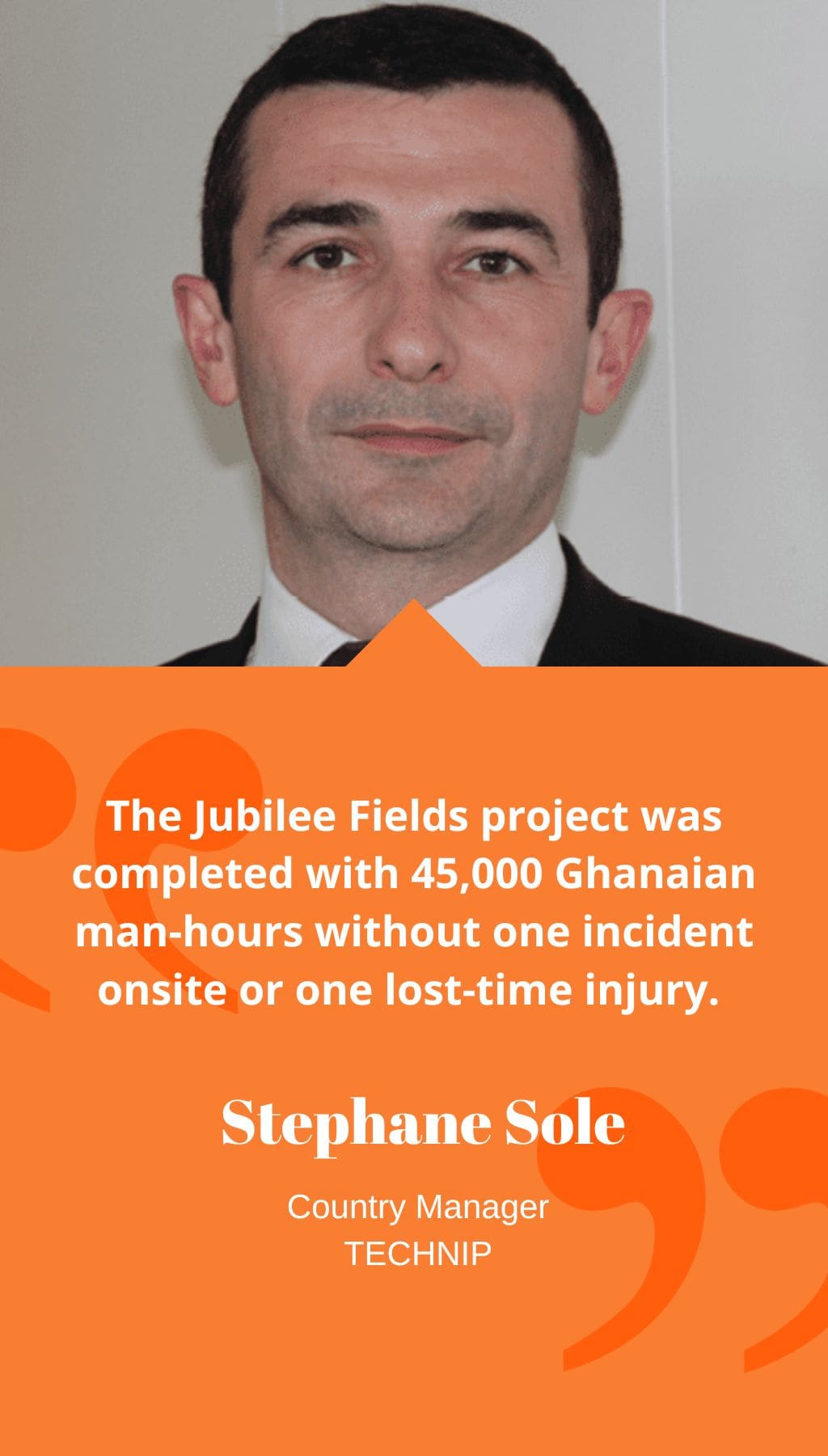
- Ghana | 30 September 2015

Could you please provide us with a brief introduction to Technip Ghana and your presence in Africa?
Technip first established a presence in Africa in 2009 and now has offices based in Egypt, Ghana, Algeria, Nigeria, and Angola. In 2010, Technip successfully completed projects for LPC, Kosmos, and Anadarko and is currently working on four projects. In February 2011, Technip was awarded a contract from GNPC for a gas export plant and the engineering and design of an oil and gas processing plant, which is near completion. We have also been awarded a contract from Tullow for the Jubilee Fields.
What suite of services does Technip provide to its clients in the oil and gas industry?
Technip provides standard EPC contracts, utilizing our construction expertise. Technip has been successful in the subsea sector, where we are currently involved in three EPC projects. Our strategy is to capitalize on the business activity within the subsea sector. Additionally, Technip provides engineering and design services for onshore processing plants.
Can you provide us with an overview of your deal with Tullow and what innovative solutions did you use on the project?
Technip was awarded the contract for Phase One of the Jubilee Field project by Tullow. An IPC project team was created which gave Tullow responsibility of the operation and Kosmos was responsible for the CAPEX, which meant that all of our technical exchanges were with Kosmos. We experienced some technical challenges while working on the project, and we needed to find innovative solutions.
Is Technip focused on training a Ghanaian workforce?
Technip is proud of the training completed in Ghana and we have successfully trained 15 local engineers out of our engineering centers. The Jubilee Fields project was completed with 45,000 Ghanaian man-hours without one incident onsite or one lost-time injury. We have developed an in-house HSC program called Perls. We have created a partnership with Kumasi University that offers scholarship programs and specific oil and gas training for Ghanaians. Additionally, we place emphasis on employing Ghanaian employees to work on our projects, and we are creating an engineering company that will transfer more technology and increase man-hours for local people.
How is Technip involved in the GNPC project?
Technip was awarded a contract by the Ghana National Petroleum Corporation, which was successfully installed and completed on time. Technip is particularly proud of the successful integration of GNPC engineers within the Technip team. The GNPC project advanced the further development of Technip’s local capacity.
What are Technip’s competitive advantages?
Technip is a leader and has a strong position in the deep-water market, and we focus on projects that maximize local content. Furthermore, Technip has the expertise to plan and execute efficiently while being able to create and maintain strong relationships with our clients.
Where do you expect to see Technip in Ghana in five years time?
The new engineering company that we will have established will be in a strong position, and Technip will have completed all projects on time and on budget.














